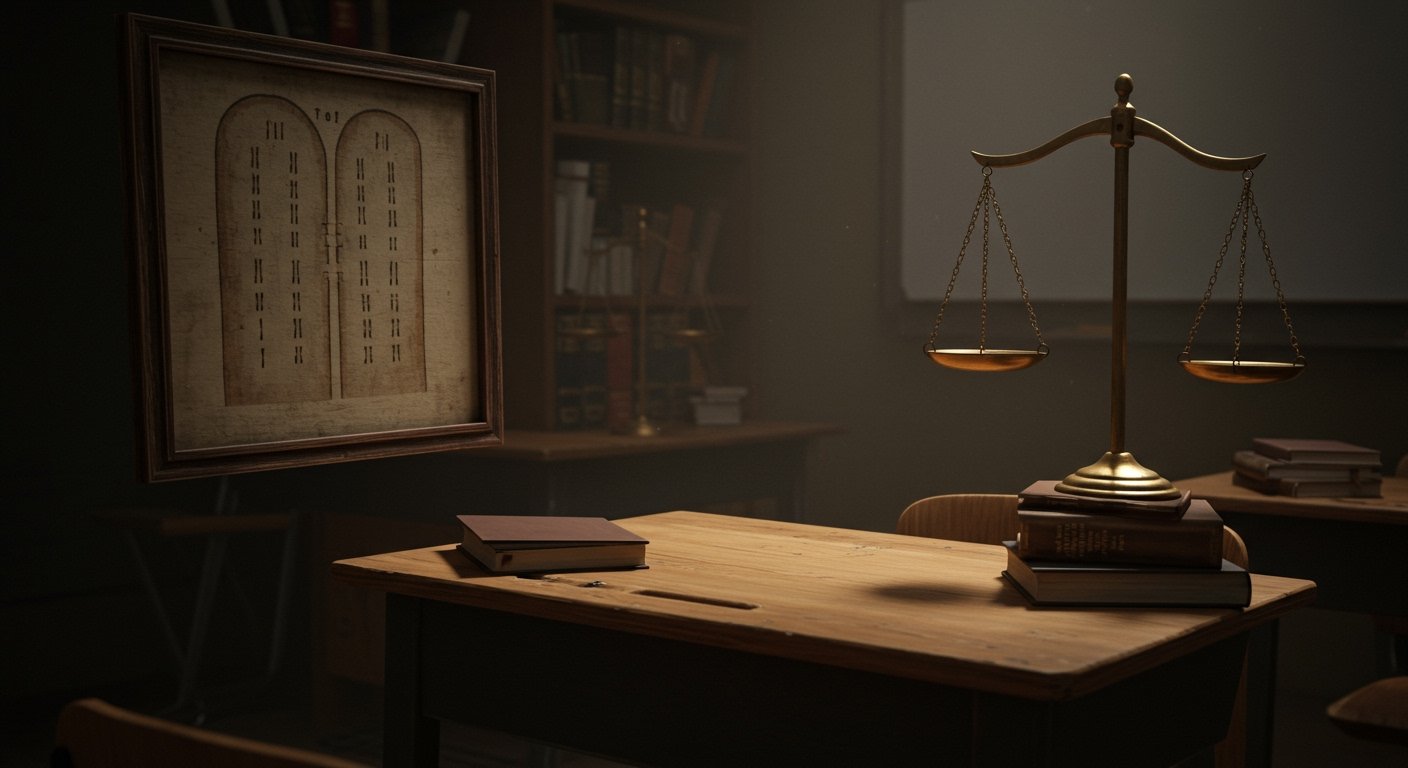A significant legal challenge is mounting in Texas as the American Civil Liberties Union (ACLU) and a coalition of other civil rights groups have filed a lawsuit seeking to block a newly enacted state law. The controversial measure mandates that every public school classroom across Texas must display a copy of the Ten Commandments.
The legislative push, spearheaded by Republican lawmakers, culminated in the bill’s passage through the Texas Senate with a decisive vote of 28-3. Following the legislative approval, Texas Governor Greg Abbott publicly vowed to sign the bill into law, signaling strong executive support for the mandate.
The Genesis of the Law and Immediate Opposition
The law quickly became a focal point of national debate upon its passage. Proponents argue that displaying the Ten Commandments provides a moral compass and historical context for students, reflecting the nation’s foundational principles. However, opponents, including the plaintiffs in the lawsuit, contend that the law represents a clear violation of the separation of church and state, as enshrined in the U.S. Constitution.
The ACLU, a prominent organization dedicated to defending civil liberties, wasted no time in mobilizing a legal response. Joined by several other advocacy groups, they filed the lawsuit shortly after the bill cleared the legislature, anticipating Governor Abbott’s promised signature would make the law effective.
The Core of the Legal Challenge
At the heart of the lawsuit is the argument that compelling public schools to display a religious text amounts to government endorsement of religion, violating the Establishment Clause of the First Amendment to the U.S. Constitution. This clause prohibits the government from establishing a religion.
The ACLU articulated its position unequivocally, labeling the measure as “blatantly unconstitutional.” This strong condemnation underscores the plaintiffs’ view that the Texas law crosses a fundamental line, using public schools to promote religious doctrine rather than maintaining neutrality towards religion.
The lawsuit seeks an injunction to prevent the state from implementing or enforcing the law, arguing that allowing the mandate to proceed would cause irreparable harm by forcing students and staff in public schools to be subjected to a state-sponsored religious display.
Political Context and Executive Support
Governor Greg Abbott’s unwavering support for the bill highlights the political dimensions of the issue. His pledge to sign the legislation into law signals the state executive branch’s commitment to the mandate, setting the stage for a potentially protracted legal battle between the state and civil liberties advocates.
The 28-3 vote in the Texas Senate demonstrates significant legislative backing for the measure within the state’s Republican-controlled legislature. This broad support suggests that the law is a product of a deliberate legislative effort to introduce religious texts into the public education environment.
Implications for Public Education
The outcome of this lawsuit will have significant implications not only for Texas but potentially for other states considering similar measures. If the law is upheld, it could embolden efforts elsewhere to introduce religious displays or instruction in public schools. Conversely, if it is blocked as unconstitutional, it would reinforce the legal precedent against government-mandated religious expression in educational settings.
School districts across Texas are likely awaiting the court’s decision to determine how they must proceed. Implementing the law would require logistical steps to acquire and display the Ten Commandments in potentially tens of thousands of classrooms statewide.
What Lies Ahead
The filing of the lawsuit marks the initial phase of what is expected to be a complex legal process. The courts will now weigh the state’s authority to enact such a mandate against the constitutional rights of individuals regarding religious freedom and the separation of church and state.
The case is likely to involve extensive legal arguments and potentially appeals, which could see it reach higher state or even federal courts. The resolution of this legal challenge will be closely watched by educators, parents, legal scholars, and civil liberties advocates across the nation, as it touches upon deeply held beliefs about the role of religion in public life and institutions.
For now, the fate of mandatory Ten Commandments displays in Texas classrooms rests with the judicial system, as the ACLU and its partners seek to halt the implementation of the controversial new law.






